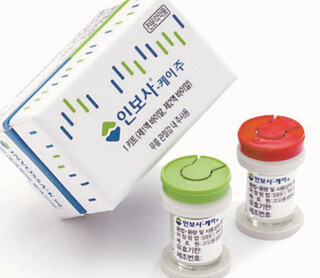KOLON defeats the head of the Food and Drug Administration
“Let’s write other facts great”
Executives deceived as a result of the experiment are innocent
 Material photo” alt=”<한겨레> Material photo” />
Material photo” alt=”<한겨레> Material photo” />
Material photo
The Administrative Court judged that the revoke of the product license from the Ministry of Food and Drug Safety for Invossa Kayju (Invossa), a gene therapy for knee osteoarthritis, was justified. However, executives accused of hiding or deceived some of the test results in order to obtain permission from the Ministry of Food and Drug Safety were found acquitted at the first trial of the criminal trial held that day. The 12th administrative division of the Seoul Administrative Court (presiding judge Hong Soon-wook) ruled on the 19th that Kolon Life Sciences defeated the plaintiff in a lawsuit against the Minister of Food and Drug Safety to cancel the disposition for revoking the license for manufacturing and selling items. The court judged that “the evidence submitted by the Ministry of Food and Drug Safety alone is insufficient evidence to admit that Kolon Life Sciences intentionally manipulated or omitted the experimental results for fear of unfavorable results in the product approval examination.” As it has a direct effect on health or health, if it is found that an important part of the active ingredient is different from that stated in the application, it should be considered that there is a serious defect in the product license.” He then concluded, “Since it has been confirmed that the main component of Invossa 2 solution is kidney cells, the Ministry of Food and Drug Safety can directly revoke the item license, and it is legal to cancel the item license.” Invossa, the first gene treatment for knee osteoarthritis in Korea, was approved by the Ministry of Food and Drug Safety in July 2017. However, when it was revealed that liquid 2, one of the main ingredients of the treatment, was not cartilage cells, but kidney cells that could induce tumors, the Ministry of Food and Drug Safety canceled the product license in July 2019. Earlier, the Seoul Central District Court Criminal Division 25-3 (presiding judge Kwon Seong-su) sentenced a fine of 5 million won to the director of Kolon Life Sciences Joa, who was charged with obstructing the execution of hierarchical public affairs. The charges of hiding or deceived some of the test results were not admitted to obtain permission from the KFDA. Amugae Kim, who was also prosecuted, was also acquitted. The court may admit that, “At least unavoidably, the Ministry of Food and Drug Safety did not report this with the intention of not being able to examine the results of the nude mice (3 out of 10 with epithelial malignancies).” “It is to decide whether to grant a license on the premise that there is a case inconsistent with the facts when disposing of a license by an administrative office. Therefore, if the administrative office does not sufficiently confirm the fact and permits it, it does not constitute a crime to obstruct the execution of public affairs by hierarchies. “I don’t.” Although Director Cho and others excluded adverse experimental results from the review process, the Ministry of Food and Drug Safety, an administrative agency, did not request additional experiments on Invossa 2 fluid cell components, and was guilty of interfering with the execution of hierarchical public affairs because there was insufficient revalidation for experiments in the early stages of development. This is to the effect that is not established. By Jo Yoon-young, staff reporter
